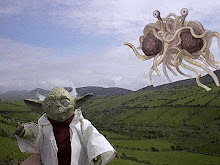
by Brad Steiger
(Copyright 2008, Brad Steiger - All Rights Reserved)
Posted: 22:00 January 29, 2008
Helvetius, the grandfather of the celebrated philosopher of the same name, was an alchemist who labored ceaselessly to fathom the mystery of the "philosopher's stone," the legendary catalyst that would transmute base metals into gold. One day in 1666 when he was working in his laboratory at the Hague, a stranger attired all in black, as befitted a respectable burgher of North Holland, appeared and informed him that he would remove all the alchemist's doubts about the existence of the philosopher's stone, for he himself possessed such an object.
The stranger immediately drew from his pocket a small ivory box, containing three pieces of metal the color of brimstone. With those three bits of metal, he said, he could make as much as twenty tons of gold.
The alchemist examined the pieces of metal and seeing that they were very brittle, he surreptitiously scraped off a small portion with his thumbnail. He then returned the three pieces of metal to his mysterious visitor and invited him to perform the process of transmutation.
The stranger answered that he was not allowed to do so. It was enough that he had verified the existence of the metal to Helvetius. It was his purpose only to offer him encouragement in his experiments.
After the man's departure, Helvetius procured a crucible and a portion of lead, into which, when in a state of fusion, he threw the stolen grain he had secretly scraped from the alleged philosopher's stone. He was disappointed to find that the grain evaporated, leaving the lead in its original state.
Thinking that he had been made a fool by the mad burgher's whimsy, Helvetius returned to his own experiments in attaining the philosopher's stone.
Some weeks later, when he had almost forgotten the incident, Helvetius received another visit from the stranger. Impatiently, the alchemist told the man that if he could not do as he claimed, then please leave the laboratory at once.
"Very well,” the stranger said, consenting to perform a demonstration of the philosopher's stone for the skeptical Helvetius. “I shall show you that that which you most desire does truly exist.”
The mysterious visitor said that one grain was sufficient, but it was necessary to envelope it in a ball of wax before throwing it on the molten metal; otherwise, its extreme volatility would cause it to vaporize.
To Helvetius's astonishment, the stranger transmuted several ounces of lead into gold. Then he permitted the alchemist to repeat the experiment by himself, and Helvetius converted six ounces of lead into very pure gold. Read More


No comments:
Post a Comment